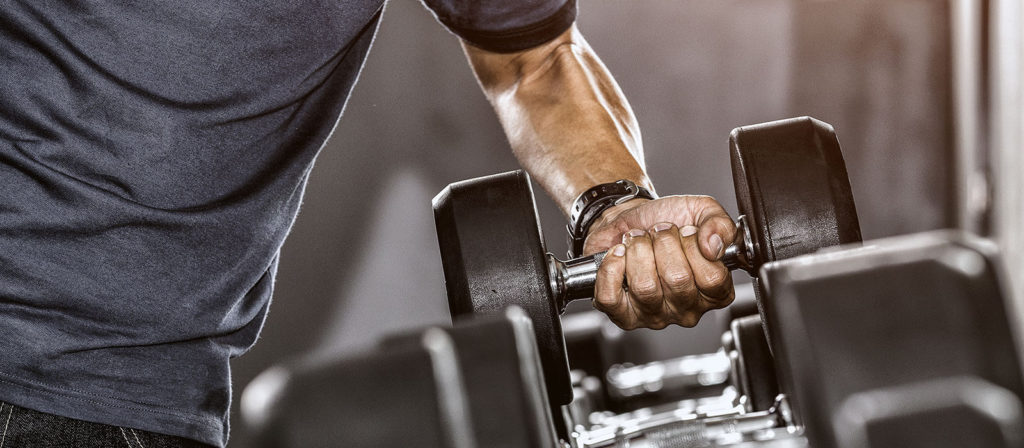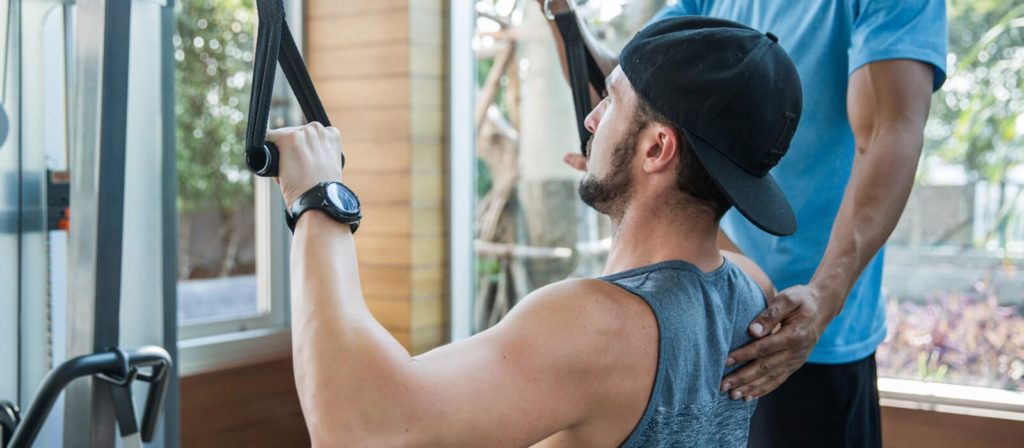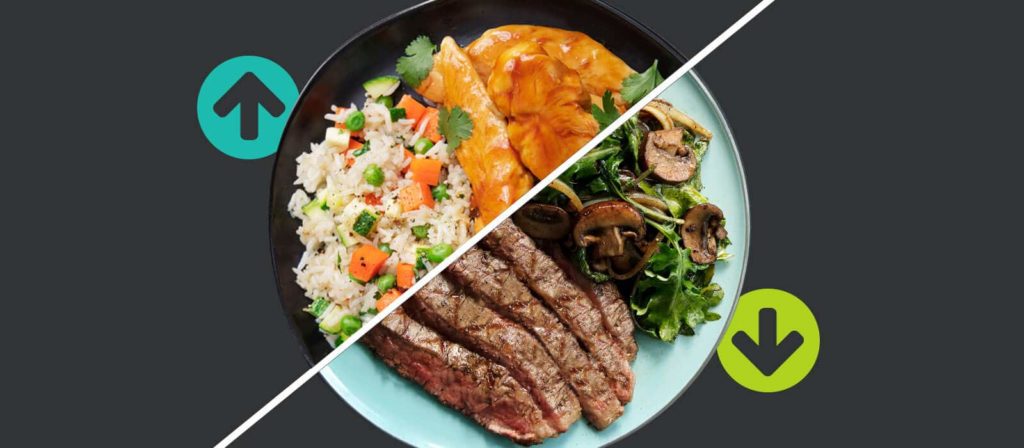On June 10, wrestler David Taylor will be competing for a chance to represent the United States at the World Championship in Paris, France. David earned four state championship titles in high school and two national titles during his college career. He now has his sights set on the 2020 Olympics in Tokyo.
We talked with David about how his views on nutrition have changed since high school and how working with Metabolic Meals has improved his meal planning and training regimen.
Metabolic Meals: You’re a big nutrition guy. What exactly is your nutritional philosophy?
David Taylor: When I was younger, I didn’t make nutrition as much of a priority in my life as I do now. I thought I could just eat whatever I wanted and my body would take care of the rest. But I went through a time period with injuries and other issues, and I realized the importance of nutrition at a professional level. I started working with the Training Lab in California and Sam Calavitta. He had me adopt a basic ketosis diet, so I’m working toward always being in fat-burning mode. It’s a comprehensive plan, which includes nutrition, strength training, conditioning — everything. My body feels so much better after making nutrition a strong priority, and I’ve noticed a huge difference in my performance.
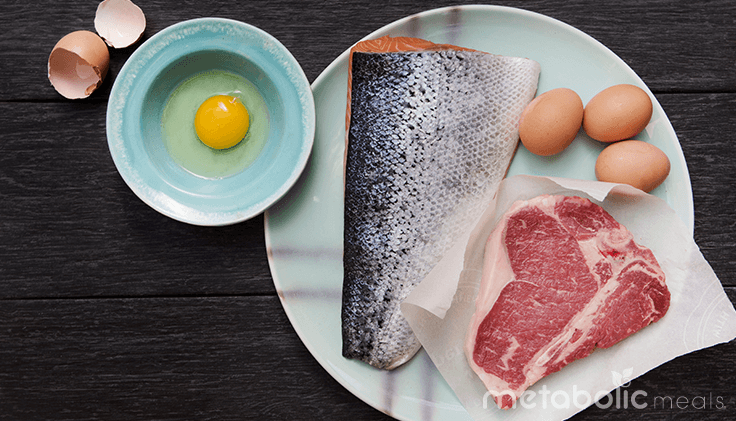
MM: Do you feel like changing your nutrition has played a big part in lowering inflammation and injuries in practice and training?
DT: I believe so. I believe since starting this diet, the overall inflammation has decreased. I feel better now than I’ve felt in the last 10 years in terms of my daily training, my recovery, my output during those training sessions, and my general health. I get sick very rarely, if ever. I used to have some stomach problems, and I don’t have any of those anymore. I think what I’ve noticed more than anything is that taking care of my body must be a priority so I can have my best performances. I’ve become very passionate about trying to help people eat healthier because I’ve noticed firsthand how much better I feel after implementing these lifestyle choices.
MM: I think a lot of guys that have had the type of success you did starting at a young age may not have grasped the importance of nutrition. Then when you get to the highest levels, there’s very little that separates competitors. It’s the small things, like learning what nutrition works for you and putting the same dedication into what you eat as you do with other aspects of your training, that give you a big advantage.
DT: Yeah, I think that a lot of times when you have success doing one thing it’s very difficult to change and do something different. After coming short of my Olympic dream in 2016, I realized I needed to make some changes. I had to figure out whether it was my diet, my training, my nutrition, injury prevention, or something else. I was able to take a step back and reevaluate why I was wrestling, what I wanted to get out of it, and what I needed to do to get there. I think as you get older, nutrition becomes more and more important because your body doesn’t work the same way it did five or six years ago.
MM: That’s a great point. The other thing that works against elite athletes is training volume increases. At your level now, think about how much harder you train than you did in high school. You have to figure out how to optimize your nutrition plan so you can recover in time for you next practice while minimizing risk of injuries. You were a unique case, too, in the sense that you’ve gone up in weight classes quite a bit over the years, haven’t you?
DT: Yeah. My freshman year in high school, I weighed about 98 pounds. I wrestled at 103 as a freshman and sophomore, 112 as a junior, 135 as a senior. Then, I started my first weight transition, and I wrestled at 157 as a freshman in college and at 165 my sophomore through senior years. I’m now competing at 189 pounds.
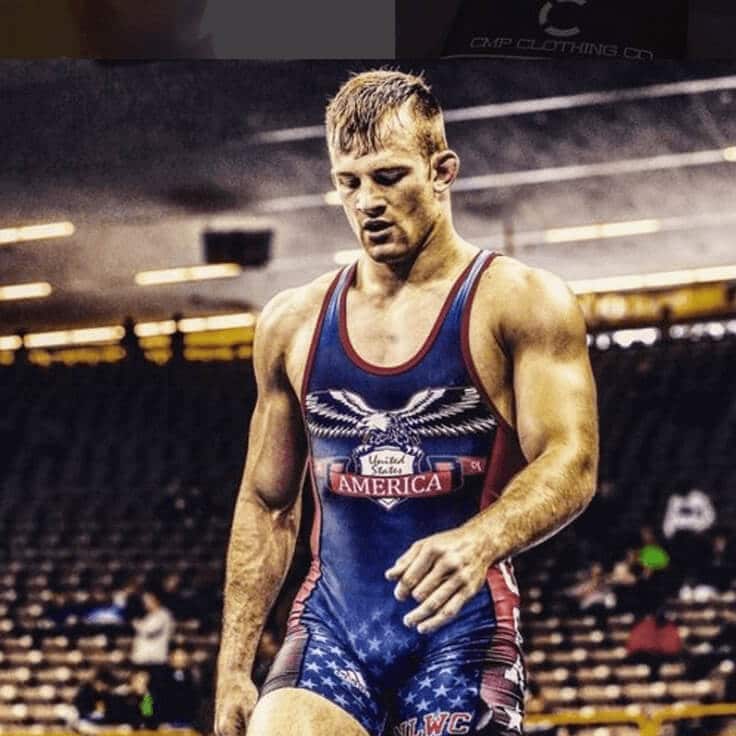
MM: You look like somebody who is actually big for your weight class, which means you’ve done the necessary things with your nutrition to put on quality size without letting it affect speed or conditioning. That’s obviously taken some discipline when it comes to nutrition and your strength & conditioning.
DT: Right. My first phase was pretty much eating as many calories as possible. At the time, I was consuming 5,000 to 6,000 calories a day, no matter what it was, because I needed to put that size on and I had to build a fundamental base. That made wrestling very difficult because I was getting bigger, and my conditioning level, speed, and agility decreased. Then, when I got to a point where I was happy with my size, I was able to really start leaning myself down. I’m the biggest I’ve ever been, but I also believe I’m the leanest, the fastest, and the strongest I’ve ever been. I know it’s just a matter of that comprehensive plan, knowing that going up wasn’t for those eight months. It was for that long-term goal of Tokyo 2020.
MM: Lets talk about your recent results with Metabolic Meals. I would think one of the obvious benefits of Metabolic is we fit into your personal nutritional philosophy, but if you’re eating multiple times a day, there’s got to be a convenience factor to having some of these meals prepared for you.
DT: Adding Metabolic Meals to my diet has literally been a lifesaver, especially for my wife, because I’m constantly hungry. It’s so convenient to be able to get a high-quality meal, put it in the microwave for less than three minutes, take it out, and be able to eat it. Sometimes, I’ll eat five or six of those in a day. It’s just really easy to grab it, eat it, and know that I’m following the same diet routine that I would if I was going to the grocery store. I can’t even really put into words how beneficial that’s been.
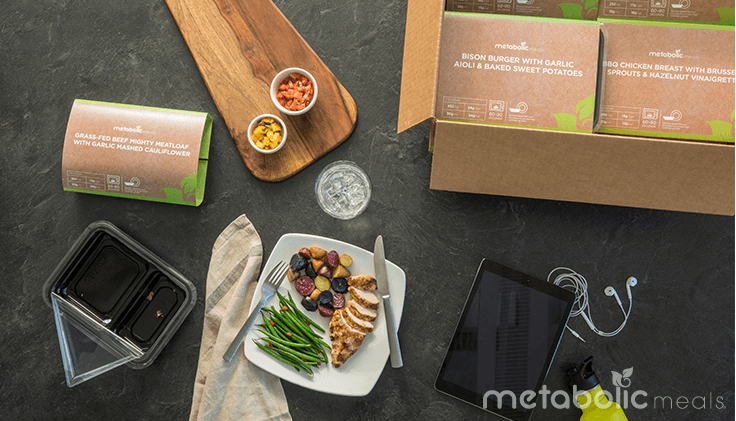
MM: What other benefits outside of the convenience aspect have you experienced since using Metabolic Meals?
DT: I’d say in addition, it’s the quality of the food. You’re getting grass-fed, organic, wild-caught food without the preservatives and added ingredients you’d get if you bought any other frozen meal at the grocery store. With those, you just get a high salt content and ingredients I would never eat. With Metabolic Meals, you’re getting the highest-quality food in a portion that is very manageable to take on the go. Another thing that has really impressed me with Metabolic Meals is just how fresh everything is. I’ve never eaten a meal from you guys that I didn’t love!
MM: What advantages do you think having your meals prepared and delivered offer you compared to what you see competitors doing, what you see them eating, and how they’re handling their nutrition?
DT: I’d say one of the biggest advantages is just the time, knowing that I could come home from a workout and eat in two minutes. I don’t have to go through my fridge and pick out different things and make my own meals — I have nutritious food I can get in my body quickly after a hard workout. In addition, I’m getting high-quality food. I know there’s not many people out there that take the time to go to the grocery store and buy that quality food consistently, bring it home, and prepare it every single day because that just gets overwhelming. As you’re trying to focus on your training and your recovery, you come home and the last thing you want to do is go cook something. Working with Metabolic Meals just really lets me focus on the thing I really want to do — and again, it makes my wife a lot happier when she’s not constantly trying to prepare food.
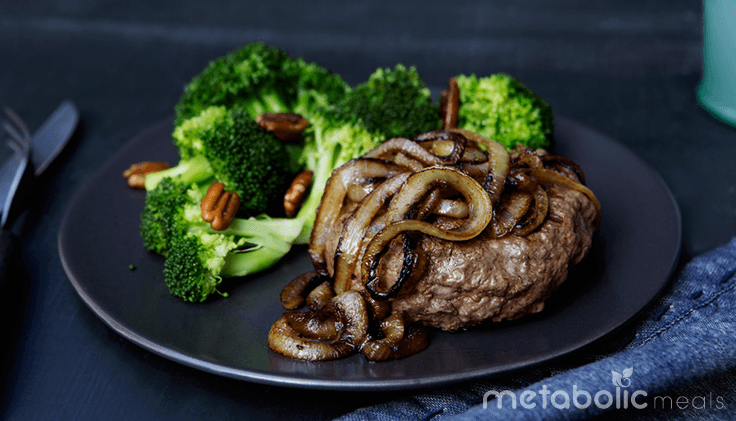
MM: What are your three favorite Metabolic Meals?
DT: That’s tough to narrow down.I really like when the Bison Burgers with Caramelized Onions and Pecan Broccoli. I also love your Teriyaki Chicken and ALL of your Chilis!
MM: Let’s finish with what your current goals are. You’ve got pretty major competitions coming up — can you elaborate on some future events?
DT: Our world team trials are coming up on June 10. I’ve been in the finals once, but this time, I’m really looking forward to the opportunity to break through that barrier and represent the United States in the world championships for my weight class August 25 in Paris, France. At the world team trials, the top three competitors are on the national team, but we only take one guy that represents the country at the world championships or the Olympics. Each year, the world championships are the biggest event. And everything leads up to the 2020 Olympics in Tokyo.


